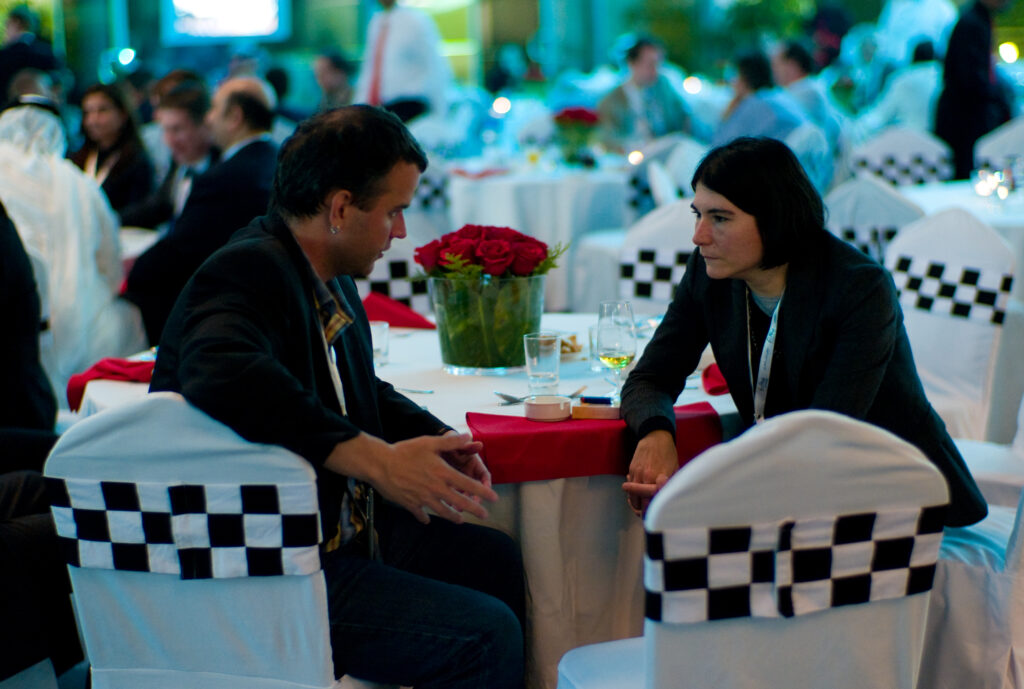In our everyday conversations, sometimes we need to be a bit tricky with the truth to get things done smoothly. But what if there were scientific tips to help us do this better? We’re going to give you a scientific basis on how to get away with lying effectively. We’ll look at the psychology and brain science behind it all, making the art of stretching the truth a bit easier to understand. Let’s dive in.
Eye contact

Before you start with the lie, always make eye contact with the person. This delineates that you aren’t hiding anything and there is nothing deceptive about you. But don’t make it chronic, your constant gaze may give the listener a hint that you are lying. Try to make deliberate eye contact.
Another important thing is the ‘brain tachometer’ – the rate at which we blink our eyes is a stress indicator. The normal blink rate is 10-20 blinks per minute and as the stress increases the blink rate can be 50-70 blinks per minute. so avoid the stress and make a deliberate eye contact to lie effectively.
Build up your plot
There are “always” people out there who ‘always’ lie, and the secret which makes them succeed in lying is they make their story beforehand which gives them time to make it stronger to represent it.
Win by colours
When you know that your day is going to be full of ‘lies’, here’s a secret weapon you can carry with you all day long and you don’t need any extra space to carry it. It’s the colour of your shirt. BLUE colour signifies that you are a genuine and assiduous personality which increases the chances acceptance of your lie. While the RED colour if used with proper body language and confidence it will overpower the person listening to you which make the person believe in your lie.
Also Read: The Psychology of Colors
The power of “Consistency”
People hate inconsistency, so start your conversation with something that will give you a positive response from the person listening to you. Ask “How are you doing?” and people will respond positively to this. The theory behind this is that you are likely to get a positive response as people ‘hate’ inconsistency and they will tend to maintain the consistency, which makes the people believe in your lie.
Confidence
Let it be a truth or a lie, this guy here is like a handyman. Confidence comes in handy every time you say anything when you want people to believe in you. So lying with confidence is another scientific way.
Use your body language to distract
Tracy Thomason, the district lieutenant governor marketing, describes the use of hand gestures while evaluating Tyler Benting’s introduction speech during the Toastmasters in Lubbock meeting Tuesday in the School of Law. The Toastmasters goal is to improve the public speaking and communication skills of its members.
When you know you are not a good liar, use your hands to distract while you lie but with firmness and confidence. Or else your shaky hands could be a sign for one of the reasons which show you lying. Because fidgeting delineates/produces negative energy by the fear of being caught, hence to release these negative energy people tend to fidget with objects around.
Consistency
You are not the only smart guy or girl in the world. There are some people who can make out when you lie, so they ask you to tell your story from the end. That could be a problem. So try maintaining consistency, and know your story well.
Don’t fumble
While talking if you fumble and get confused in your own intricate story that is also one of the reasons which will show you are lying. Dn’t stress yourself, stress can be a lie indicator. So confidence and knowing your story thoroughly will help you get rid of stress and chances of fumble while you lie.
The power of warm touch
When you want to lie and you want people to believe in you, always keep warm coffee cups or warm water glasses or the ambiance warm which helps you to make people believe in you. When your body feels a warm touch your body becomes amiable, making you’re the people listening to the lie credulous.
Use the magical word
There are some words which can help you, not ‘abracadabra’ but the word ‘because’. Use more of this word in your lie because our brain tends to think of causes and effects, so when you say because and subsequently after that whatever you say is reasonable even if it’s not.